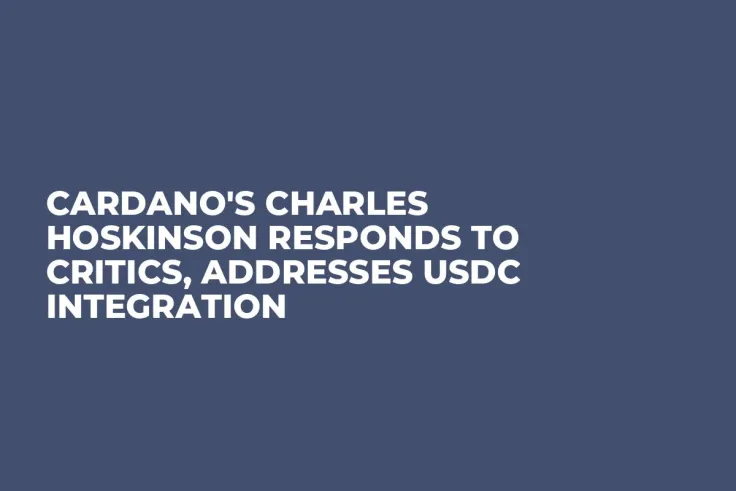
In a recent X (formerly Twitter) exchange, Charles Hoskinson, cofounder of Cardano (ADA), responded to criticisms regarding the integration of Circle’s USDC into the Cardano blockchain. The conversation was sparked by a tweet from a user named Alf - Vault #119, expressing frustration about the perceived lack of transparency and urgency regarding a potential $10 million investment to bring USDC to the Cardano chain.
Hoskinson's response shed light on the decentralized nature of Cardano's ecosystem, emphasizing the importance of community involvement and governance. The Cardano cofounder conveyed that Cardano possesses a Treasury and operates with community governance.
He suggested the formation of a working group at Intersect, encouraging discussions with relevant parties, obtaining price quotes and requirements, advocating for community voting to sanction the plan and allocate funding, and subsequently executing the proposed actions. Hoskinson argued that decentralization requires active participation from the community, from decision-making processes to the execution of plans.
Cardano-USDC conundrum
The criticism and subsequent response highlighted the ongoing challenge of integrating USDC into the Cardano ecosystem. The main hurdles include the absence of native stablecoin options on Cardano and difficulties in bridging assets from other blockchains. Unlike Ethereum (ETH), where USDC is native, on Cardano, it is represented as an ERC-20 asset and bridged with CNT representation.
This necessitates transferring USDC from other blockchains, such as Ethereum, to the Cardano network, introducing potential issues such as fees and restrictions. Despite the challenges, efforts are underway to overcome these obstacles and tap into the immense potential for growth within the Cardano ecosystem.
The debate also highlighted the broader issues surrounding decentralized protocols and governance. Hoskinson used the example of Circle and USDC to underscore the idea that decentralization requires proactive engagement from individuals. Whether it is marketing, partnerships, growth hacking or roadmap development, the success of a decentralized ecosystem relies on the collective efforts of its community.
As Cardano continues to evolve, these discussions serve as a testament to the project's commitment to decentralization and community-driven decision-making. The challenges faced in integrating USDC underscore the complexities inherent in building a truly decentralized and interoperable blockchain ecosystem.
 Tomiwabold Olajide
Tomiwabold Olajide Gamza Khanzadaev
Gamza Khanzadaev Alex Dovbnya
Alex Dovbnya Godfrey Benjamin
Godfrey Benjamin